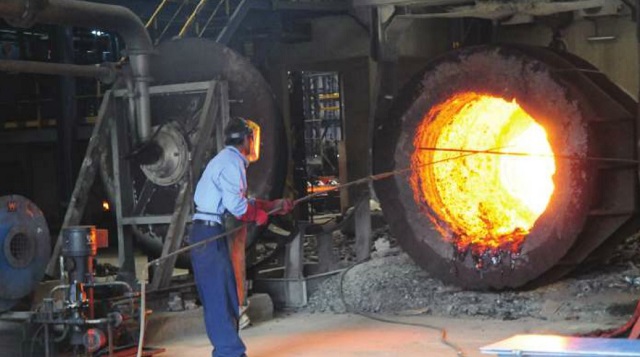
Govt, manufacturers tussle as cheap Chinese imports supplant local content at big infrastructure projects
Abid Alam, the proprietor of Steel Rolling Mills, knows who is responsible for the predicament facing the manufacturing sector – the government, which has failed to enforce guidelines that contractors undertaking the ongoing big infrastructural projects in the country must source raw materials from local suppliers.
In an exclusive interview with The Independent, Alam said the steel industry in Uganda now has the capacity to produce high quality steel for any project but unfortunately ‘‘the government had failed them.’’
“Uganda now has a tremendous capacity to produce 600,000-700,000 tonnes of steel per annum. It is at par with the per capita consumption and there’s no need to import hot-rolled steel bars because they can be made locally,’’ he said.
“The problem has been that the government has been giving these big projects out without even considering that the Ugandan manufacturing industry even exists. They still think that there’s no capacity at home. So really, the government officials are to blame.”
He said they invested $50 million (about Shs 168 billion) at the plant in Jinja in 2011 to utilize local iron ore mined in Kabale District, with the hope that they would be able to serve the growing steel market.
The firm’s investment in modern machinery was in anticipation of new infrastructural projects that were coming on board including Karuma, Isimba dams, Entebbe and Jinja Express Highways, Expansion of Entebbe Airport, and the Standard Gauge Railway.
Now, the factory is staring in the face of receivership by Standard Charted Bank to recover a Shs 50 billion loan acquired in 2011.
“The Chinese claim that our steel is [of poor quality] but theirs is worse than ours, and the Uganda National Bureau of Standards has proved it,” he says. “To make matters even worse, when the Chinese want 20,000 tonnes, they double the imports, with the rest being dumped onto the Ugandan market thus killing the local market but no one wants to listen to [our pleas]. That is why we are in dire need of oxygen.”
Unfortunately, cheap Chinese imports are spread across the industries as the Chinese import everything.
Statistics from the Uganda Manufactures Association show that Uganda’s overall industrial capacity utilisation currently stands at 53%, confirming that the majority of Alam’s production capacity lies idle, exposing the challenges that the manufacturing sector is grappling with.
Amos Nzeyi, the chairman of the Uganda Manufactures Association (UMA), said over the past five years, the growth trend for the manufacturing sector has been negative.
For example, from the 11% growth in 2014/15, manufacturing declined to 4% in 2015/16, says Nzeyi. “The declining performance is attributed to limited mainstreaming of local content, inability to manage conversions costs in Uganda and absence of robust export development strategy.
He says the huge volume of imports compared with the exports has contributed to the woes that the manufacturing sector is facing.
In 2014, Uganda’s exports declined by 5.4% to slump to $2,676 million worth, while the value of imports grew to $6,139 million. Asian imports accounted for 55% of the overall imports in 2014.
Nzeyi, who also doubles as a co-owner of Pepsi manufacturer Crown Beverages Ltd, says the cause of the worrying trend on market share is attributed to Uganda’s inability to optimise her capacity to locally produce, supply and distribute essential goods that end up being imported thus resulting into the huge trade deficit.
Stuart Mwesigwa, the business development manager at the Roofing Rolling Mills, and whose firm is now operating at between 40-44% capacity, told The Independent that the firm’s inability to access market in government projects coupled with the depreciating shillings amidst high costs of production are also hurting the manufacturing industry.
He added that it has been hard for the company to transfer the costs to the final consumer through higher prices for fear of losing market especially to the cheaper imports.
However, Chinese Ambassador Zhao Yali told The Independent that he is not aware of any issues with regard to poor quality of imports of Chinese-made raw materials for the big government projects.
Finance Minister Matia Kasaija said the government was looking into the matter. The Chinese Ambassador along with executives in the manufacturing sector was due to have a crucial meeting convened by the finance ministry on August 02 to address the issue of local content for the various government projects. But Kasaija told The Independent that local manufacturers are yet to show proof that their products are of high quality and that they have capacity to deliver on time. The manufacturers insist that they have proof that their products are duly certified by the Uganda National Bureau of Standards (UNBS).
 The Independent Uganda: You get the Truth we Pay the Price
The Independent Uganda: You get the Truth we Pay the Price



